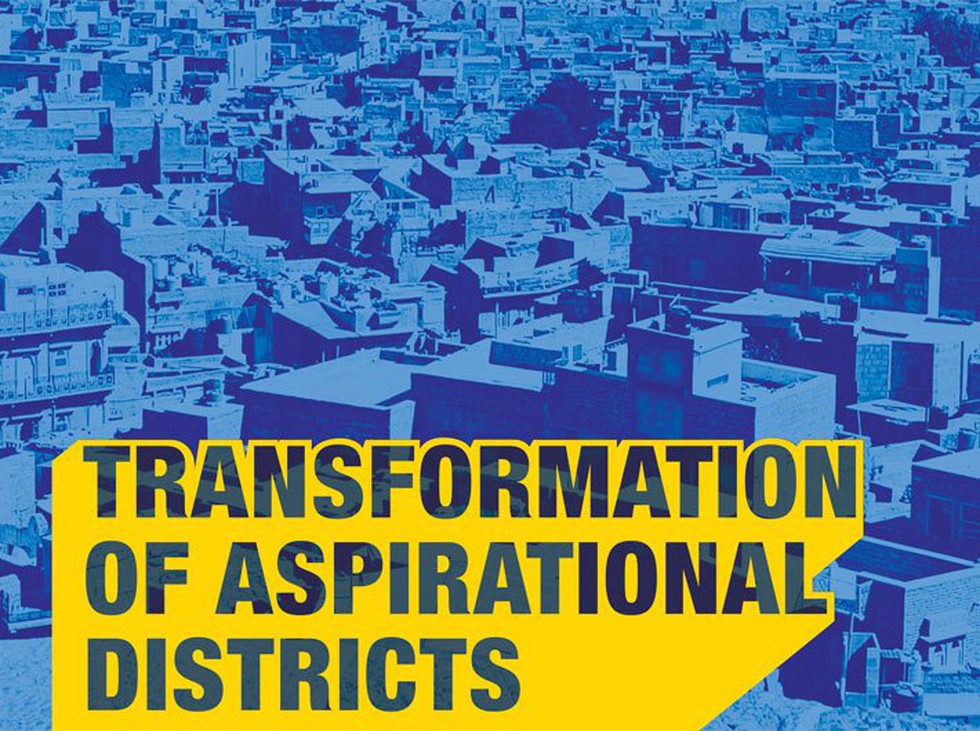The Modi Government flagship programme – the Aspirational District Programme (ADP) – has recently received international recognition. It is strange that this has not received sufficient attention in the country and has not seen sufficient discussion among policy-makers and in the public policy community. Not so strange, because our commentariat and intelligentsia – the majority among them – especially the section which has, for the last seven years weaved false narratives against Narendra Modi – have deliberately ignored this achievement since it firmly places the Modi government’s capacity to successfully and practically work out transformative policies, on the world map. This is something that this section does not want or approve of. Since their entire narrative and their being viable globally is dependent on the intensity with which they can make a false projection of Modi and his government on the international forum, they have ignored this policy success.
One of their major false argument is that Modi has neglected the marginalised and the underprivileged, the Aspirational District Programme – entirely conceived and thought of and guided in execution by Prime Minister Modi – has successfully worked to include India’s most neglected districts in the mainstream of development and through a series of initiatives and programmes has been able to bring about a major development turn-around in these districts.
The larger question that this section of vocal anti-Modi intelligentsia and propagandists ought to ask is why were there so many districts in India, so many decades after independence, which have been neglected, exploited and marginalised. The success of the ADP clearly demonstrates that Modi not only talks of mainstreaming and empowering the marginalised but has also worked towards achieving it through envisioning and working out imaginative and challenging programmes which are fundamentally transformative in the long run.
The United Nations Development Programme (UNDP)’s appraisal of the Modi government’s unique Aspirational District Programme in a positive light and its recognition of this being a unique initiative is a major milestone. It has once more established that India under Modi is making successful policy contributions to the global community as a whole.
The UNDP report remarks that the ADP is “is a very successful model of local area development. It is aligned to the principle of “leave no one behind”. Regardless to which state the district belonged to, regardless of whether there was a BJP dispensation in power in these states, these districts were focused upon, since they had to be included in the national march towards empowerment and prosperity. This was, one could say, a district-based approach to Deendayal Upadhyaya’s philosophy of ‘Antyoday’ – the philosophy of leaving no one behind in the march of development, progress and growth.
The report also noted that this was possible because “Political commitment at the highest level has resulted in rapid success of the programme.” The UNDP also remarked that the ADP “should serve as a best practice for several other countries where regional disparities in development status persist for many reasons.” The Modi government has repeatedly come up with best practices in governance and the success of the ADP is the latest in that cycle of policy intervention and contribution.
Various dimensions have emerged from this initiative. Some of the other crucial takeaways from this unique programme makes it clear that the initiative has actually demonstrated how the 3Cs – Convergence, Collaboration and Competition – can actually transform governance and enhance performance and delivery. Convergence in the success of the ADP has shown how the ‘synthesis of different government schemes and authorities’ at the state, district and block level can ensure that governance and delivery thrives in synergy and not in silos. The dimension of ‘Collaboration’ in the ADP has seen a multi-layered partnership between ‘civil society organisations, philanthropies and government’ while ‘Competition’ in this case has only enhanced performance and achieving of targets and accountability. In fact, the ADP, as the UNDP report observes, “aims to instil a culture of change through competition, collaboration and convergence in some of the most deprived parts of the country.
Apart from catalysing and expediting development, among these most backward districts, sectors such as Healthcare, Nutrition, Education, Agriculture, Water Resources” have seen major boost and focus because of the ADP. Health and nutrition have received major focus while other key sectors such as ‘Basic Infrastructure, Financial Inclusion and Skill Development’ has also seen major focus in these districts. The programme has also enabled the district administration to identify the strength and weakness of the districts, it has also presented a comprehensive framework for development of these districts as well.
The UNDP report also noted that there “was no doubt that it has been immensely successful in propelling development among the backward districts. It must be noted most Aspirational Districts are located in remote areas, and some even plagued with Left Wing Extremist (LWE) conflicts. These factors continue to hinder their growth and make it more difficult for any development programmes to be implemented” and therefore the ADP’s significance increases a number of times. The LWE affected districts have never seen such an approach, no systematic and comprehensive schemes were presented to these districts for lifting them out of stagnation and neglect before the ADP was launched by PM Modi in 2018.
That some of the districts have been able to better deal with Covid-19 is also because of the ADP which is “contributing to strengthening of healthcare and nutrition services.” The ADP was launched with the objective of “reducing inter and intra-state disparities” and three years after it was launched it is fast on the way towards achieving that objective. “The unique features”, notes the UNDP report, “of introducing competition, handholding support from the centre and the state and collaboration with various agencies is proving successful in realising the vision of holistic development.”
The most remarkable feature, however, of the ADP, has been rightly comprehended and expressed by the UNDP, when it noted that the success of the programme was because of the political commitment at the highest level, “…A remarkable feature of the programme that has greatly contributed in its success, is the commitment shown by the top most political leadership of the country to bring about rapid progress in the under-developed pockets in India. This includes regular monitoring of the programme at the level of Shri Narendra Modi, Hon’ble Prime Minister of India, who has motivated and enthused District Collectors to deliver their best at the field level…”
Since his days as Chief Minister of Gujarat, Prime Minister Modi had repeatedly displayed his game-changing capacity to identify with grassroots challenges and with the administration at the grassroots which was expected to address these. His tenure in Gujarat is a saga of how he transformed and galvanised grassroots administration for bringing about fundamental change in terms of governance, development and accountability. The ADP is a reflection of that at the national level. It reflects Prime Minister Modi’s hands-on approach when it comes to comprehensively altering for the better marginal lives. The ADP, is in fact, a practical expression of his philosophy of “Sabkaa Saath, Sabka Vikaas.”
(The writer is the Director of Dr Syama Prasad Mookerjee Research Foundation. Views expressed are personal)
Image Source: https://vajiramandravi.s3.us-east
(The views expressed are the author's own and do not necessarily reflect the position of the organisation)


